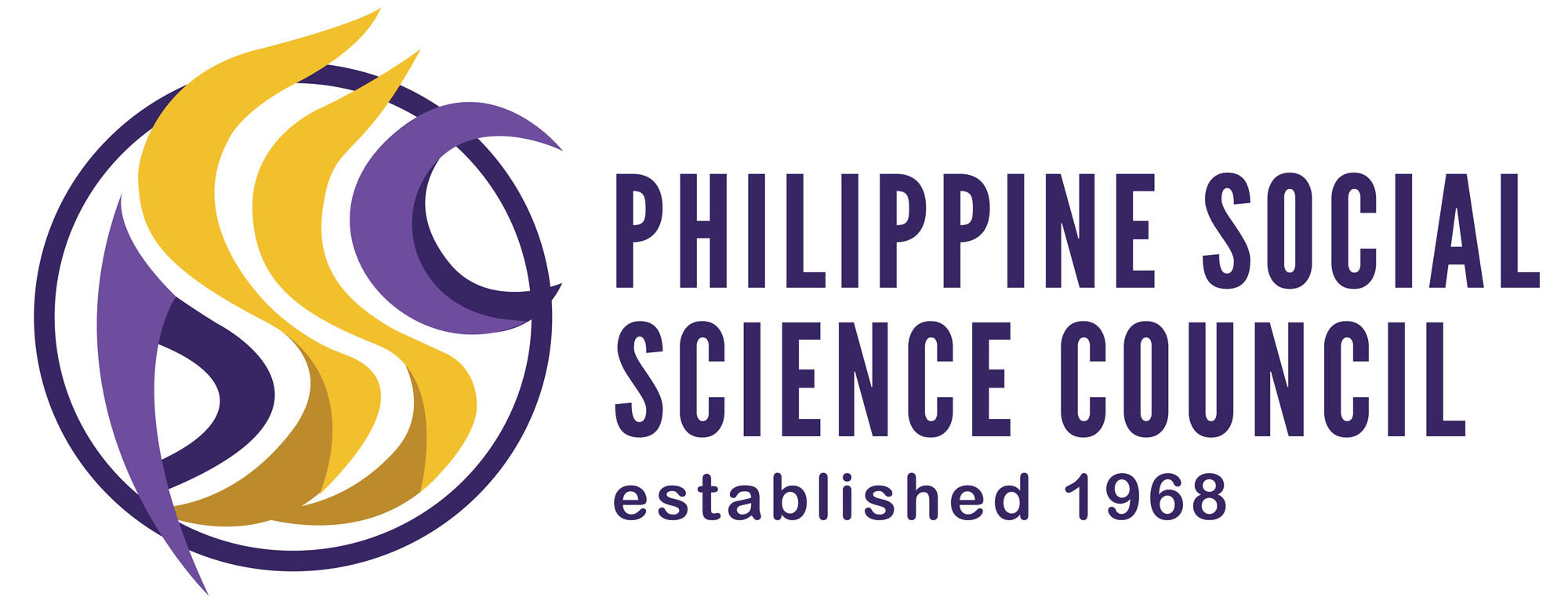What’s in a Name? Views from Anthropologists on ‘Lumad’
- Posted on
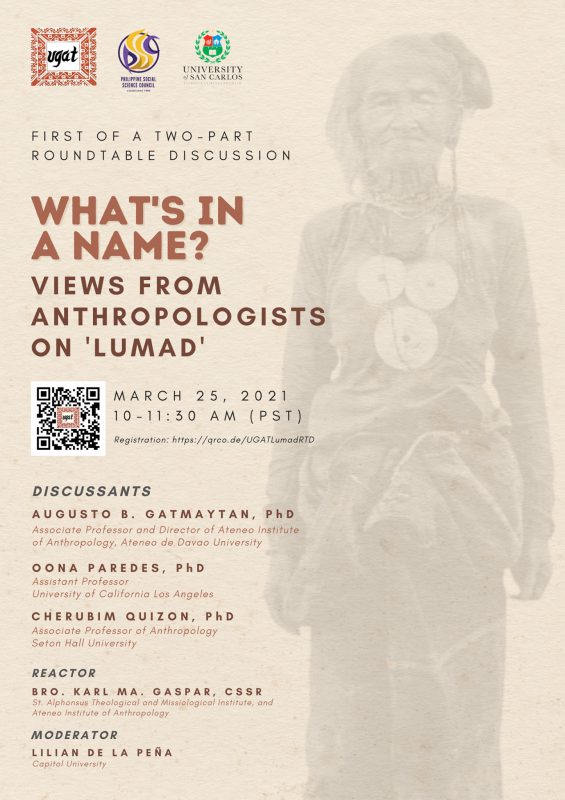
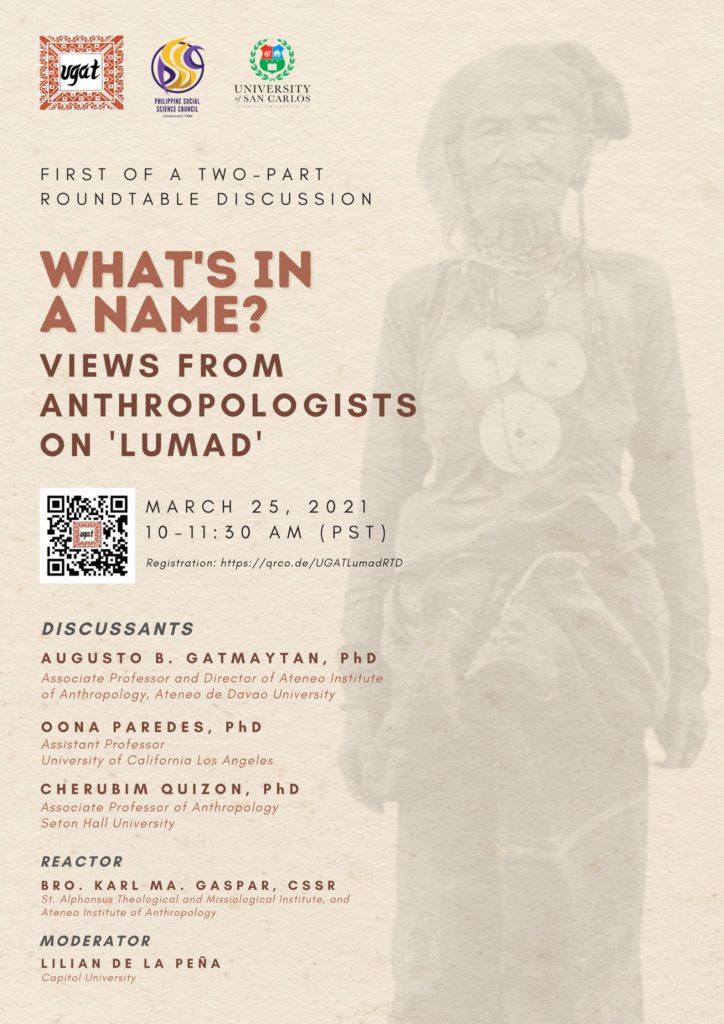
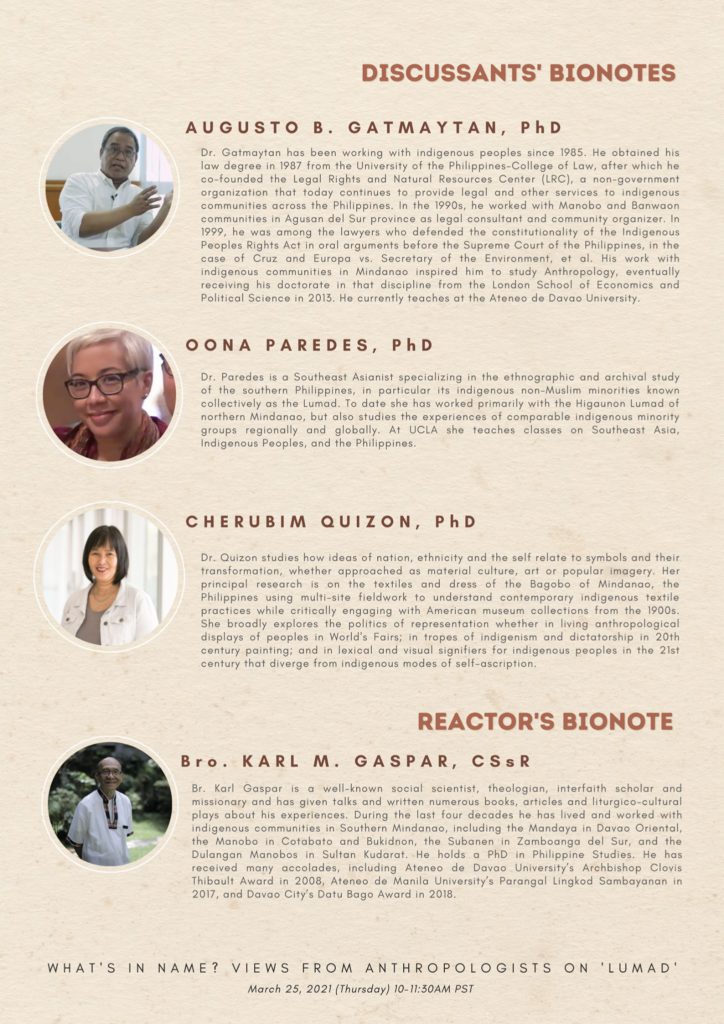
What’s in a Name?
Views from Anthropologists on ‘Lumad’
March 25, 2021 | 10-11:30 am| via Zoom
The term lumad comes from the Cebuano language and means ‘native’ or ‘natural born citizen’; indigenous or ‘from the earth’. In a region whose lingua franca is Binisaya/Cebuano, lumad gained currency as a practical and convenient generic term to encompass the various local indigenous groups. Over the years, the term has been used by various Indigenous Peoples in Mindanao as a self-ascribed category to rally their cause in the struggle to attain rights to ancestral domains and self-determination. In embracing the term ‘lumad’, the various Indigenous Peoples of Mindanao have simultaneously used other terms of self-identification.
This first Round Table Discussion highlights the views from anthropologists who have closely worked with various lumad groups in Mindanao. Drawing from their research experience and commitments to their respective lumad communities, the anthropologist-speakers of this forum will unpack and unsettle the politics of naming. The discussion is couched on the key assumption that the adoption and use of any specific identity is a complex, fluid and context-driven practice, such that all human beings—indigenous or otherwise—can lay claim to multiple, and even overlapping identities. The multiplicity and contingency of identities notwithstanding, certain identities acquire greater salience and significance in defense of what a group, as individuals and collectivities, regards as inherently fundamental human values and rights.
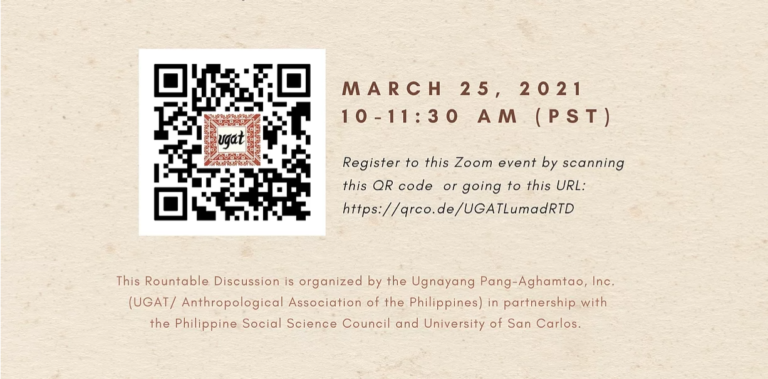


What’s in a Name?
Views from Anthropologists on ‘Lumad’
March 25, 2021 | 10-11:30 am| via Zoom
The term lumad comes from the Cebuano language and means ‘native’ or ‘natural born citizen’; indigenous or ‘from the earth’. In a region whose lingua franca is Binisaya/Cebuano, lumad gained currency as a practical and convenient generic term to encompass the various local indigenous groups. Over the years, the term has been used by various Indigenous Peoples in Mindanao as a self-ascribed category to rally their cause in the struggle to attain rights to ancestral domains and self-determination. In embracing the term ‘lumad’, the various Indigenous Peoples of Mindanao have simultaneously used other terms of self-identification.
This first Round Table Discussion highlights the views from anthropologists who have closely worked with various lumad groups in Mindanao. Drawing from their research experience and commitments to their respective lumad communities, the anthropologist-speakers of this forum will unpack and unsettle the politics of naming. The discussion is couched on the key assumption that the adoption and use of any specific identity is a complex, fluid and context-driven practice, such that all human beings—indigenous or otherwise—can lay claim to multiple, and even overlapping identities. The multiplicity and contingency of identities notwithstanding, certain identities acquire greater salience and significance in defense of what a group, as individuals and collectivities, regards as inherently fundamental human values and rights.



What’s in a Name?
Views from Anthropologists on ‘Lumad’
March 25, 2021 | 10-11:30 am| via Zoom
The term lumad comes from the Cebuano language and means ‘native’ or ‘natural born citizen’; indigenous or ‘from the earth’. In a region whose lingua franca is Binisaya/Cebuano, lumad gained currency as a practical and convenient generic term to encompass the various local indigenous groups. Over the years, the term has been used by various Indigenous Peoples in Mindanao as a self-ascribed category to rally their cause in the struggle to attain rights to ancestral domains and self-determination. In embracing the term ‘lumad’, the various Indigenous Peoples of Mindanao have simultaneously used other terms of self-identification.
This first Round Table Discussion highlights the views from anthropologists who have closely worked with various lumad groups in Mindanao. Drawing from their research experience and commitments to their respective lumad communities, the anthropologist-speakers of this forum will unpack and unsettle the politics of naming. The discussion is couched on the key assumption that the adoption and use of any specific identity is a complex, fluid and context-driven practice, such that all human beings—indigenous or otherwise—can lay claim to multiple, and even overlapping identities. The multiplicity and contingency of identities notwithstanding, certain identities acquire greater salience and significance in defense of what a group, as individuals and collectivities, regards as inherently fundamental human values and rights.

